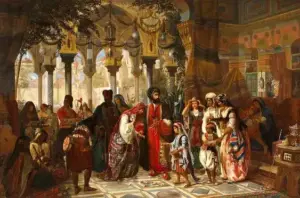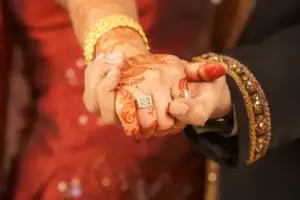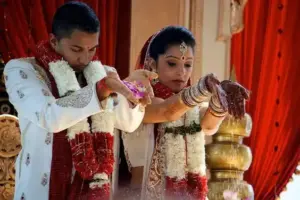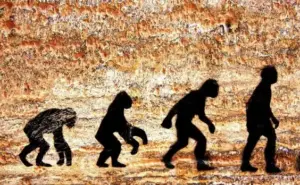Introduction
Table of Contents
ToggleMarriage is a topic that has been debated and discussed for centuries, with opinions varying widely across different cultures and belief systems. One of the persistent questions surrounding marriage is whether it is inherently a religious institution. In this blog post, we’ll explore the origins of marriage, its evolution over time, and whether or not it can truly be considered a religious thing.
The Origins of Marriage:

To understand the role of religion in marriage, it’s essential to delve into its historical roots. Marriage is not a recent invention; it has been a part of human societies for thousands of years. Early forms of marriage were often more practical than romantic, serving as a way to establish social bonds, ensure economic stability, and organize inheritance.
Religious Influence on Marriage:

As societies developed, religious institutions began to play a significant role in shaping cultural norms and practices, including marriage. In many cultures, religious leaders were responsible for officiating marriages and codifying the rules surrounding them. Different religions have different views on marriage, with some considering it a sacred sacrament, while others see it as a social contract.
Christianity and Marriage:

In Christianity, marriage is often regarded as a sacred covenant between a man and a woman. Many Christian denominations view marriage as a union blessed by God and emphasize its role in creating a family. The wedding ceremony, with its vows and rituals, is often conducted within the confines of a religious setting, such as a church.
Islam and Marriage:

In Islam, marriage is also considered a sacred institution. Islamic teachings emphasize the importance of marriage for the well-being of individuals and society. The Quran provides guidance on the rights and responsibilities of spouses, and religious leaders, such as imams, often oversee the marriage process. The marriage ceremony, known as the nikah, is a significant religious event in Islam.
Hinduism and Marriage:

Hinduism, another major world religion, views marriage as a sacred duty and a sacrament. Hindu weddings are elaborate affairs, filled with rituals and ceremonies that are often performed in the presence of a priest. The union of two individuals in marriage is considered a bond that extends beyond this lifetime, with the belief in reincarnation playing a role in shaping Hindu views on marriage.
Non-Religious Perspectives:

While many religions place a strong emphasis on marriage, it’s important to note that not all marriages are religious in nature. Secular or non-religious ceremonies have become increasingly common, allowing couples to celebrate their commitment without the involvement of religious institutions. Civil marriages, conducted by government officials, are recognized in many countries and serve as a legal framework for the union.
Evolution of Marriage:

Over time, the institution of marriage has evolved to reflect changing societal norms. In many modern cultures, the emphasis on love and companionship has grown, and marriage is seen as a personal choice rather than a societal obligation. The concept of marriage has expanded to include same-sex unions, challenging traditional views and emphasizing the evolving nature of this institution.
Legal vs. Religious Marriage:

In many societies, marriage has both a legal and a religious dimension. Legal marriage is a civil contract recognized by the state, granting certain rights and responsibilities to the spouses. On the other hand, religious marriage involves a spiritual or sacred commitment within a particular faith tradition. While the two often go hand-in-hand, they are distinct aspects of the institution.
Conclusion: Is Marriage A Religious Thing
So, is marriage a religious thing? The answer is nuanced. While many religions have played a significant role in shaping the institution of marriage, it has also evolved independently of religious influence. Today, marriage encompasses a wide range of beliefs, practices, and customs, reflecting the diverse nature of human relationships. Whether rooted in religious traditions or celebrated in a secular context, marriage remains a fundamental aspect of human society, uniting individuals in love, commitment, and partnership.
Frequently Asked Questions
Is marriage purely a religious institution?
No, marriage has both religious and secular dimensions. While many religious traditions incorporate marriage as a sacred sacrament, it also exists as a legal and social contract recognized by the state.
What is the historical origin of marriage?
Marriage has ancient roots, serving various purposes such as forming social bonds, ensuring economic stability, and organizing inheritance. Its origins can be traced back thousands of years across different cultures.
Do all religions view marriage the same way?
No, different religions have diverse perspectives on marriage. While some consider it a sacred covenant, others view it as a social contract. The rituals, beliefs, and significance associated with marriage vary widely across religious traditions.
Are there non-religious or secular forms of marriage?
Yes, many couples opt for non-religious or secular ceremonies. Civil marriages, conducted by government officials, are recognized by the state and serve as a legal framework for the union without a religious component.
How has the concept of marriage evolved over time?
The institution of marriage has evolved to reflect changing societal norms. Modern perspectives emphasize love and companionship, and marriage has expanded to include same-sex unions, challenging traditional views.
What role do religious leaders play in marriages?
In many religious traditions, leaders such as priests, imams, or rabbis often officiate marriages. They may guide couples through the ceremony, bless the union, and provide spiritual guidance related to marital life.
Can people get married without a religious ceremony?
Yes, many couples choose to have non-religious ceremonies, such as civil weddings. These ceremonies are often conducted by government officials or celebrants and focus on the legal and personal aspects of the union.
Is marriage only about love and companionship?
While love and companionship are essential aspects of marriage, it historically served various purposes, including economic stability, procreation, and social organization. Different individuals and cultures may prioritize different aspects of marriage.
How does marriage differ from cohabitation?
Marriage and cohabitation both involve living together as a couple, but marriage is a formalized legal and/or religious commitment. Cohabitation may lack the legal and ceremonial aspects associated with marriage.
What is the difference between legal and religious marriage?
Legal marriage is a civil contract recognized by the state, conferring legal rights and responsibilities. Religious marriage involves a spiritual commitment within a specific faith tradition. While often combined, they are distinct aspects of the institution.


